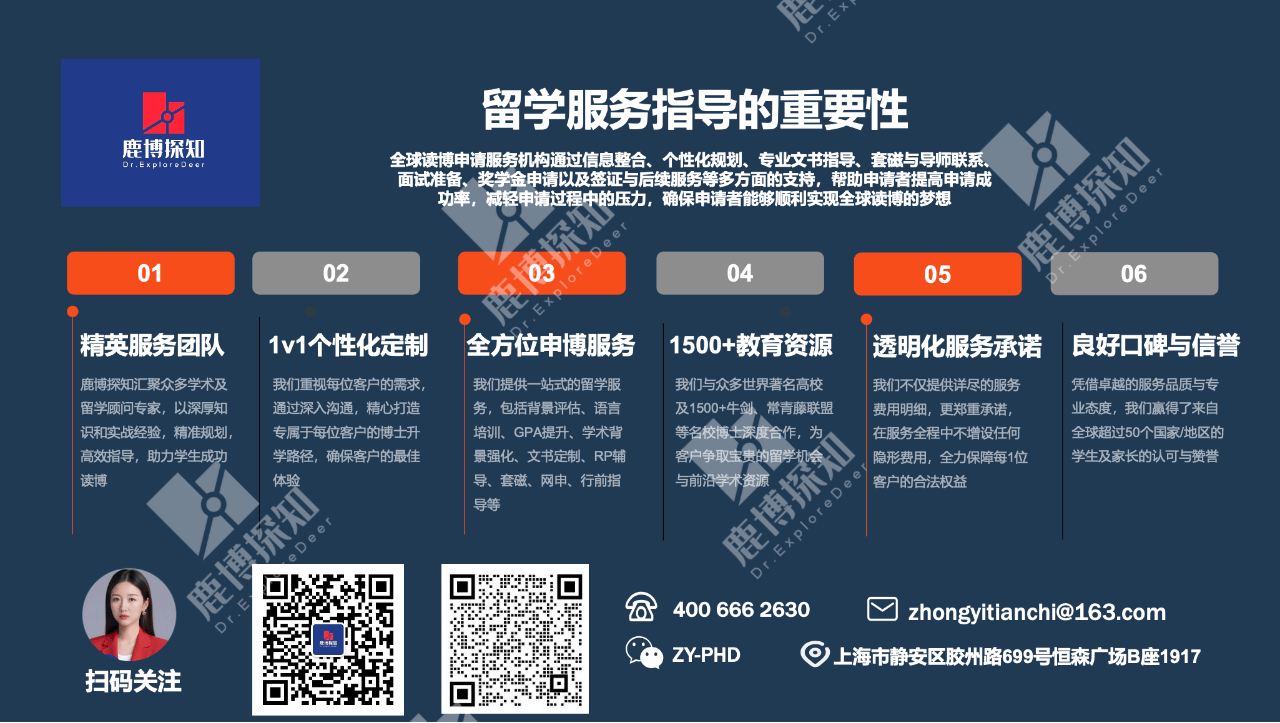申博面试难上天?读博后才发现这些对答套路早该知道!
同学们,是不是一想到要用英文聊科研就头皮发麻? “万一专业术语说错怎么办?”“面试官口音太重听不懂咋整?”“没有海外经历会不会被嫌弃?” 我们想说:海外申博英文面试本质是“用英文聊科研逻辑”,不是考雅思口语!读博后复盘发现,面试官更关注你能否清晰表达研究价值、解决问题的能力,以及和组里的匹配度。只要提前用“中文思路+英文话术”准备,把科研故事讲明白,真的能吊打90%的竞争者!
【鹿博探知】团队携手众多行业大咖,经过数千小时精心打磨,为想博士留学的同学准备了一份厚礼,行业首家《2026年全球博士申请白皮书》,涵盖博士申请趋势、就业、到全球各地申博全流程解析,限时免费领取↓↓↓

面试流程全曝光
15-30分钟英文对答,他们到底在考什么? 划重点!海外申博面试90%的问题都能提前预判,按“自我展示→动机匹配→科研硬货→未来规划”四大模块准备,英文对答轻松支棱起来!
1. 开场3分钟英文自我介绍:用“学术营销”思维递名片
别再用“Hello, I’m XX, from XX university”开头了!面试官想看的是:
✅ Research Identity(一句话定人设): “Hi, I’m Li Hua, a master’s student in Materials Science at Tsinghua University, specializing in electrochemical energy storage, particularly solid-state battery interfaces.”
✅ Research Highlights(用数据砸亮点,STAR法则走起): “During my master’s, I led a project to improve the cycle stability of solid-state electrolytes. Facing the challenge of poor interfacial contact, I designed a graphene oxide coating layer, which increased the battery cycle life by 40% in our tests. This work was published as a first-author paper in *Journal of The Electrochemical Society*.”
✅ Why Here(精准绑定导师/项目,必加文献细节!): “I’m excited to apply for Dr. Smith’s group because your recent paper on ‘In-situ XRD monitoring of solid-electrolyte interface evolution’ (published in Advanced Materials 2024) aligns perfectly with my experience in electrochemical characterization. I’m especially interested in contributing my skills in interface engineering to your ongoing project on high-voltage solid-state batteries.” 💡 实战技巧:录音回听纠发音,用“项目-问题-行动-成果(P-Problem, A-Action, R-Result)”替代万能STAR,更贴近科研场景。
2. 高频7类英文问题:提前写好“英文剧本”,面试官问不出新花样
▶ 第一类:Tell me about yourself(个人背景类)
❌ 错误示范(纯罗列): “I graduated from XX University, majoring in computer science. I took courses like AI and machine learning. I also joined a club.”
✅ 正确逻辑(背景→兴趣→匹配): “Growing up, I was fascinated by how AI can improve healthcare. In my undergrad at Peking University, I worked on a natural language processing project to analyze electronic health records, which identified early signs of diabetes with 92% accuracy. This experience drove me to pursue a master’s in biomedical engineering at Shanghai Jiao Tong University, where I developed a deep learning model to optimize cancer treatment planning. Now, I’m eager to join Dr. Chen’s lab because your research on ‘AI-driven precision oncology’ directly builds on my skills in medical data analysis and model optimization.”
▶ 第二类:Why do you want to pursue a PhD?(读博动机类)
千万别只说“I love research”!要分三层:热情→必要性→成长:
✅ Do answer: “I want to pursue a PhD for three reasons. First, my master’s research on perovskite solar cells showed me the thrill of solving fundamental scientific problems—like why grain boundaries degrade device stability. Second, I aim to become a research scientist in renewable energy, and a PhD is essential for leading independent research in this field. Finally, I see a PhD as a journey to develop rigorous analytical skills and resilience. For example, when my first set of perovskite films failed to meet efficiency targets, I redesigned the deposition process over six months, which taught me the importance of persistence in科研. I’m ready to commit to the long-term challenges of a PhD to make meaningful contributions to solar energy research.”
▶ 第三类:Walk me through your research experience(研究经历类)
用“Problem-Method-Result-Impact”四步法,细节越多越加分:
✅ Do answer(讲论文): “My master’s thesis focused on developing a more efficient catalyst for CO2 electroreduction. The key challenge was low selectivity for formate, a valuable product. I designed a bimetallic Cu-Zn catalyst and used in-situ Raman spectroscopy to monitor intermediate species during the reaction. This revealed that the Zn sites stabilized the *COOH intermediate, boosting formate selectivity to 85% at a current density of 200 mA/cm². This work not only improved our understanding of the reaction mechanism but also has potential for industrial CO2 utilization. I presented these findings at the International Conference on Catalysis 2023 and submitted a paper to *Applied Catalysis B*.”
❌ Don’t answer(太笼统): “I worked on a catalyst project. We did some experiments and got good results.”
▶ 第四类:Why do you want to join our group?(匹配度类)
必须提导师近期论文/项目细节,证明你真的做了功课:
✅ Do answer: “Dr. Johnson, I’ve followed your group’s work on ‘nanoparticle targeting for brain cancer therapy’ for a long time, especially your 2024 paper in Nature Nanotechnology where you developed a pH-responsive lipid nanoparticle that crosses the blood-brain barrier more effectively. My master’s research on surface-functionalized nanoparticles for drug delivery has equipped me with skills in particle synthesis and in vitro cytotoxicity assays. In particular, I optimized the surface charge of nanoparticles to enhance cellular uptake in my thesis, which I believe can directly contribute to your current project on improving drug delivery efficiency to glioblastoma cells.”
▶ 第五类:Can you describe your research proposal?(研究计划类)
如果是自主选题,用“Research Gap→Objective→Method→Innovation”结构:
✅ Do answer: “My proposed research focuses on addressing the limited cycle life of lithium-metal batteries caused by dendrite growth. Current strategies like electrolyte additives have had limited success in high-energy-density systems. My plan is to synthesize a novel polymer-based artificial solid electrolyte interphase (SEI) that can guide lithium ion deposition uniformly. I will use molecular dynamics simulations to screen polymer structures and validate them through electrochemical impedance spectroscopy and scanning electron microscopy. The innovation lies in designing a SEI with both ionic conductivity and mechanical strength, which could enable safe operation of lithium-metal batteries at high current densities. This research has the potential to overcome a major bottleneck in next-generation battery technology.”
▶ 第六类:What are your strengths and weaknesses?(优缺点类)
优点要带科研案例,缺点要“可改进+已行动”:
✅ Strength: “My greatest strength is my ability to integrate interdisciplinary knowledge. In my master’s, I combined chemistry and materials science to develop a new electrode material for supercapacitors. By synthesizing metal-organic frameworks and optimizing their carbonization process, I achieved a specific capacitance 30% higher than reported in previous studies. This work required learning new characterization techniques like XPS and TGA, which I mastered quickly through online courses and collaborations with chemistry colleagues.”
✅ Weakness: “One area I’m working to improve is my statistical data analysis skills. When analyzing large datasets from my electrochemical tests, I sometimes relied too much on basic software like Excel. To address this, I’ve been taking an online course on Python for data science, focusing on libraries like Pandas and Scikit-learn. I also started using Jupyter notebooks to document my data processing steps, which has already made my analyses more efficient and reproducible.”
▶ 第七类:Tell me about a failure in your research(失败经历类)
选学术相关小挫折,重点讲“如何解决+学到什么”:
✅ Do answer: “During my undergraduate research on solar water splitting, my initial design for a photocatalyst had very low activity. I spent two months trying to optimize the synthesis temperature without success. Later, I realized I hadn’t properly characterized the crystal structure, which was critical for understanding the catalyst’s performance. I collaborated with a PhD student to use XRD and TEM, and we found that the catalyst had a defective crystal lattice that hindered charge separation. This taught me the importance of thorough characterization before jumping into optimization. Now, I always start new projects with a comprehensive material characterization plan to avoid similar issues.”
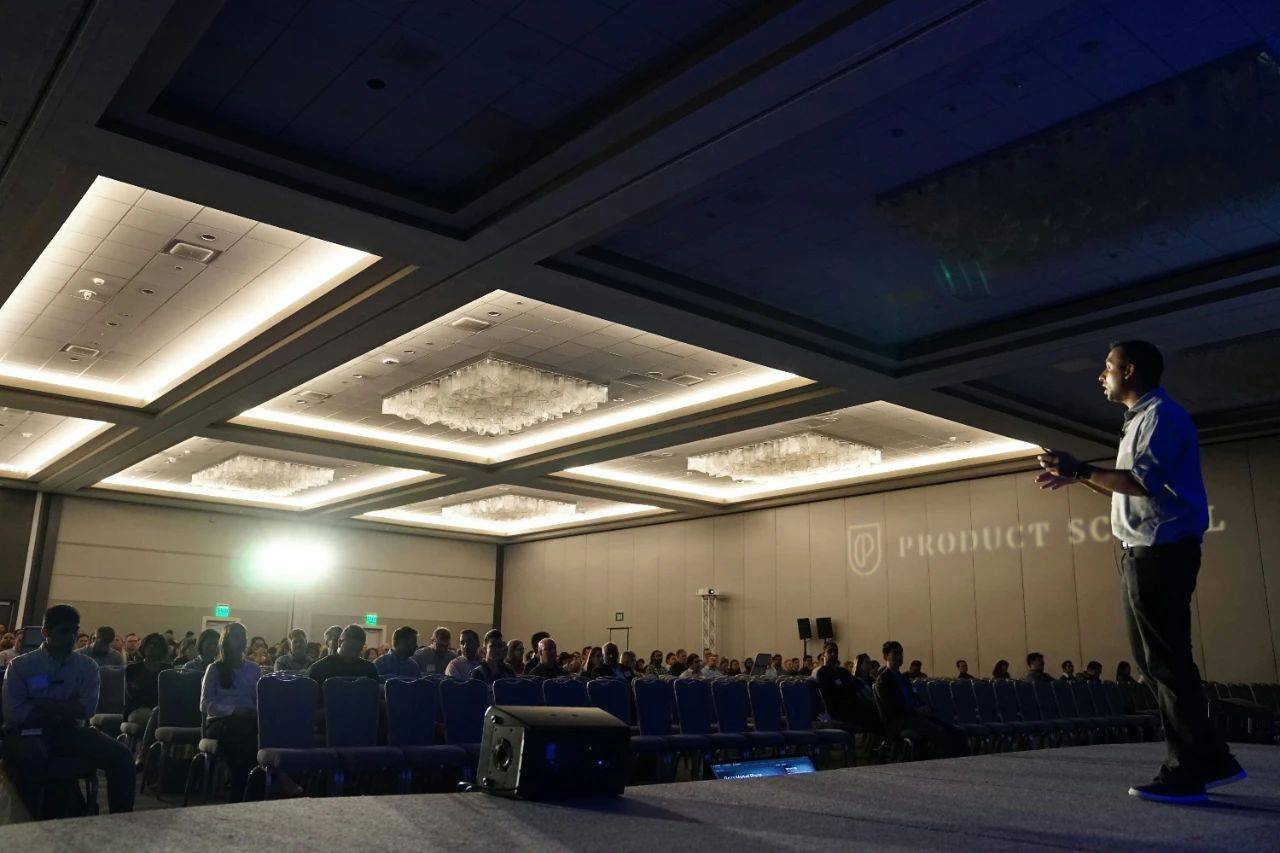

面试避坑指南
这些“隐形扣分项”,中国学生常踩!
1. 别用“Chinglish学术表达”
❌ 错误:“My research is about making batteries better.”
✅ 正确:“My research focuses on enhancing the cycle stability of lithium-ion batteries through interface engineering.”
💡 技巧:用“specific terminology + measurable impact”替代模糊表达,平时多精读目标领域顶刊论文的Abstract和Conclusion,积累地道句式。
2. 别忽视“非学术细节”
面试官问“How do you handle deadlines?”,别只说“I work hard”,要结合科研场景:
“I prioritize tasks using a Gantt chart. For example, when preparing my master’s thesis alongside a conference submission, I allocated 2 hours daily for writing and 4 hours for experiments, which helped me meet both deadlines while maintaining data quality.”
3. 反问环节别“踩学术雷”
别问“Will I have enough funding?”,要问**学术成长相关问题:
“Could you tell me about the typical research trajectory for a new PhD student in the group? Are there opportunities to collaborate with other labs on interdisciplinary projects?”
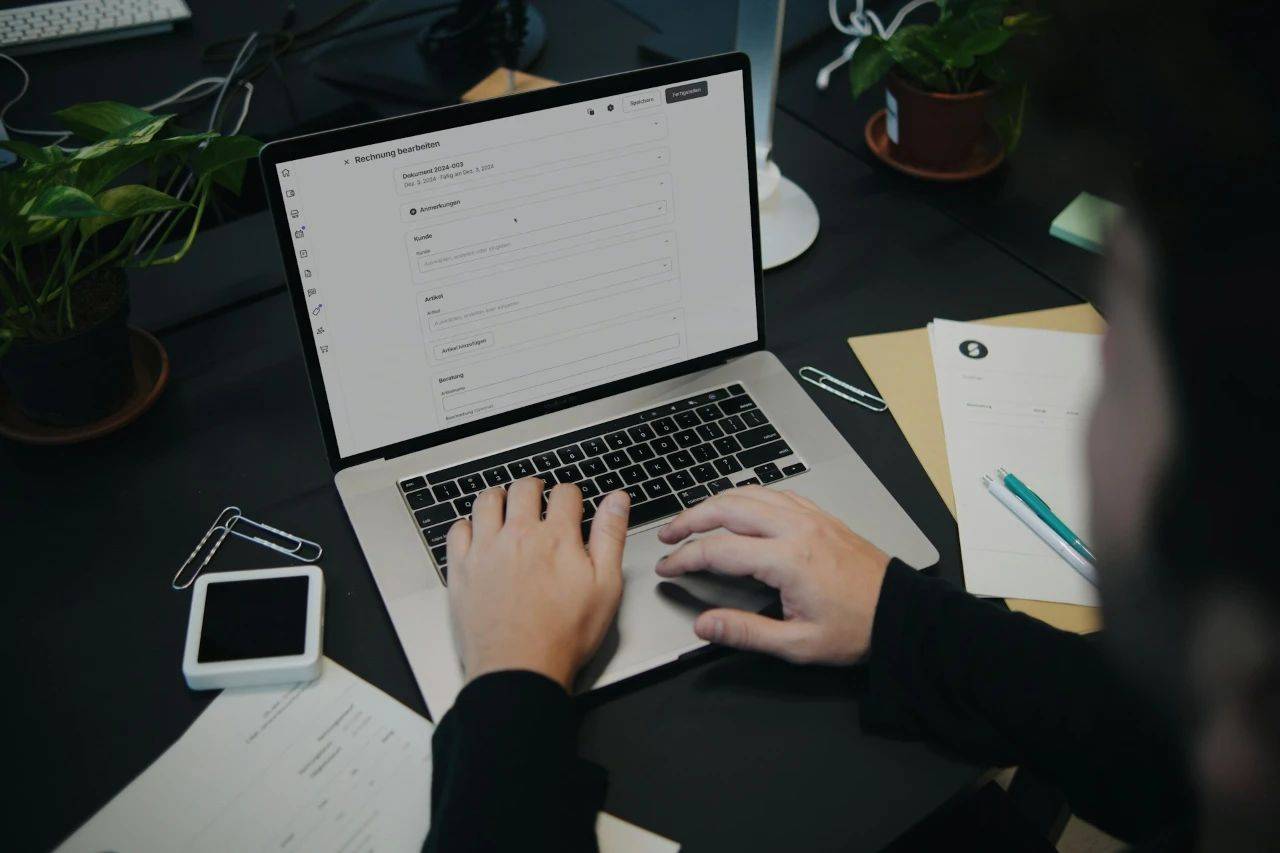

平等交流心态
让英文面试成为你的加分项
申博面试本质是“双向选择”——你不仅要证明自己“能行”,还要判断这个组是否适合你。遇到听不懂的问题,直接说:
“Could you please rephrase that question? I want to make sure I understand it correctly.”(别怕打断,清晰沟通比硬答更重要)。
回答时记住:逻辑>语法。哪怕有小语法错误,只要“研究故事”讲得清楚、热情到位,面试官也会忽略瑕疵。毕竟,他们招的是“能做科研的人”,不是“完美的英语演讲者”。
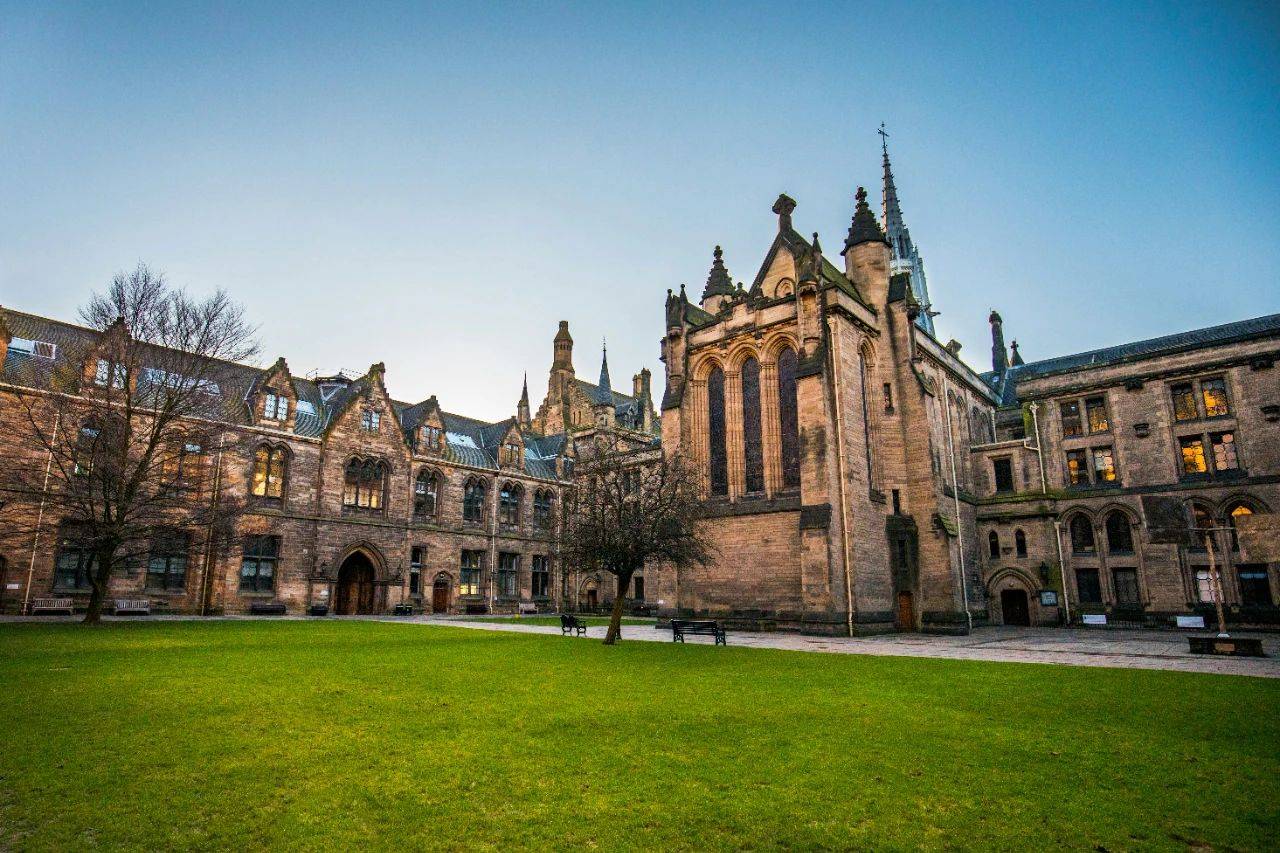

底层逻辑
为什么,凭什么
准备英文面试的过程,其实是帮你理清“我为什么做科研、我能做好什么”的过程。 别纠结“口音是否地道”“用词是否高级”,把精力放在“如何用英文讲好你的科研故事”上:
• 用具体数据量化成果(“increased efficiency by 30%”比“worked well”强100倍);
• 用文献细节绑定导师(“I read your 2024 paper on XX, and I think my skill in XX can help”);
• 用真实经历展现成长(哪怕失败,也要说清“从中学到了什么”)。
按这个思路准备,你会发现:英文面试不仅不难,还能让你更自信地展现学术魅力~
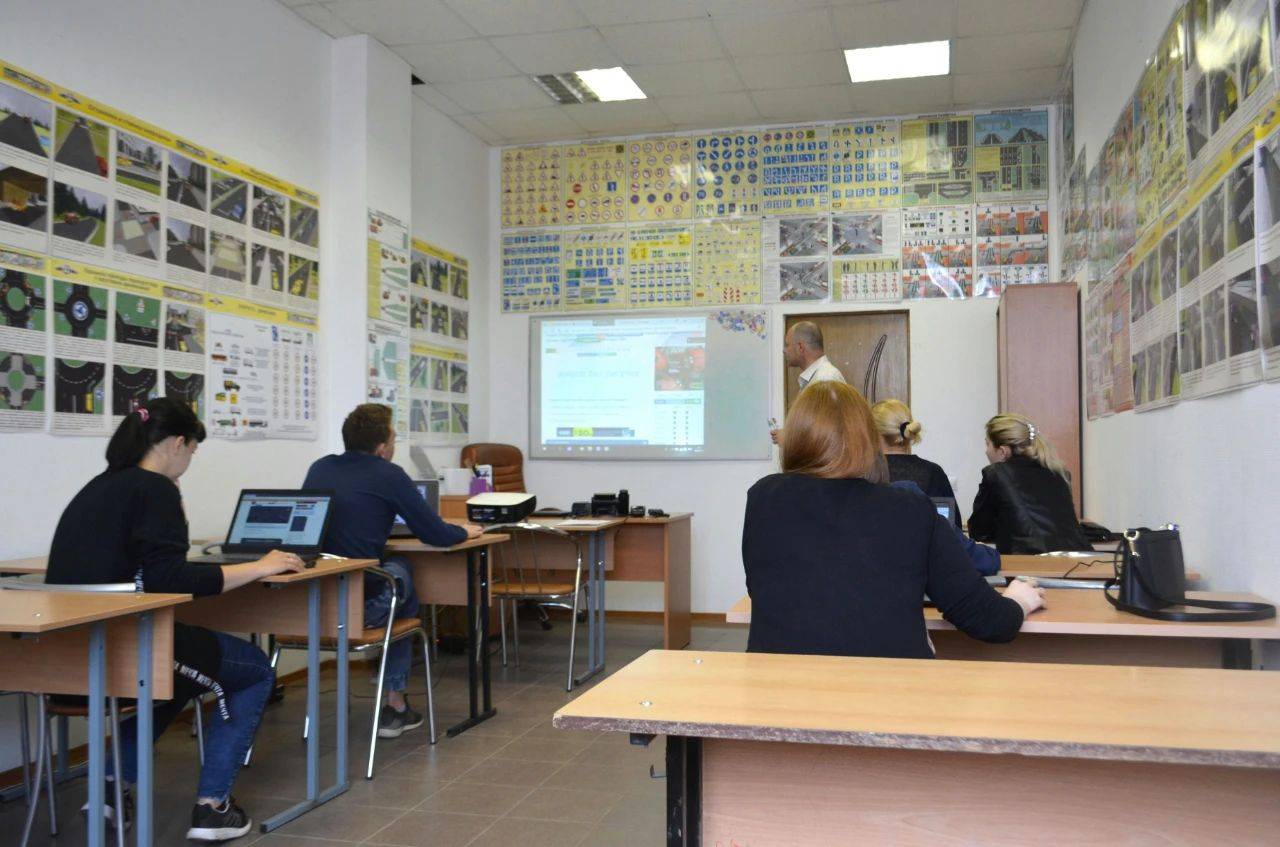

申博面试就像一场学术求职,双方都在寻找最合适的伙伴。做好充足准备,用自信和实力展现自己,你就是教授们最想招进组的人!期待大家都能顺利通过面试,斩获心仪 offer!有任何问题,欢迎扫描二维码私信Andy聊聊~
